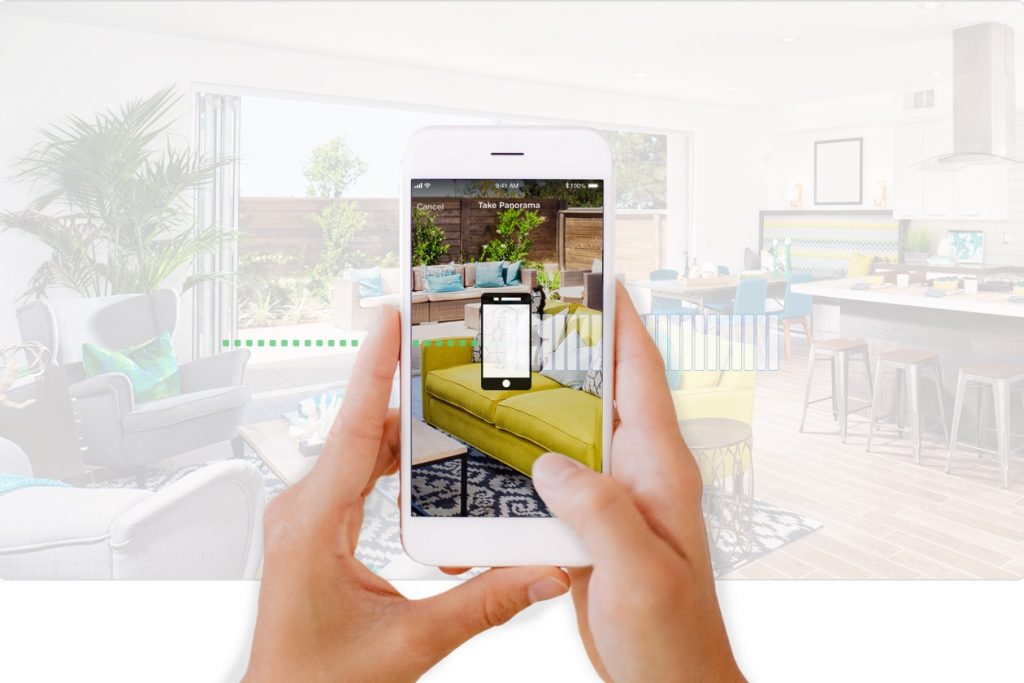8 min read
Why Digital Marketing in Real Estate Is Essential
Here are 12 effective strategies to grown your real estate business online and connect with leads through digital marketing.

When it comes to promoting your real estate business, you always want to be where potential customers are already looking. According to the Zillow Group Consumer Housing Trends Report 2018, 79% of buyers use online resources to find a home, and 63% of sellers use online resources to sell or promote their home. For real estate agents, that means you'll need to build an online presence to be discoverable. A real estate digital marketing strategy can expose your brand and services to consumers online.
Here are 12 digital marketing ideas for establishing a successful online presence:
- Define your digital marketing goals.
- Appear on social media.
- Invest in real estate advertising.
- Become a Zillow Premier Agent.
- Join an online community group.
- Purchase a lead-generating IDX website.
- Implement an SEO strategy.
- Send email newsletters.
- Create an email nurture campaign.
- Publish content that answers real estate questions.
- Share virtual home tours.
- Host a webinar or livestream.
1. Define your digital marketing goals
Your first priority when developing a digital marketing strategy is to define your goals. The goals should be specific and measurable, so you can adjust and improve them once you see results. Some ideal real estate digital marketing goals include:
- Generate 10 prospective leads from social media advertising each month
- Increase traffic to your real estate website by 15% each month
- Increase social engagement (mentions and replies) by 5% each month
2. Appear on social media
Establishing a social media presence means more than just sharing real estate Facebook posts every once in a while. You'll need to create a social media marketing strategy that drives traffic to your website, reinforces your brand and helps you stay in touch with past clients — all while allowing you to track engagement. Your social media posts should be a mix of personal, promotional and practical. Consider:
- Sharing new and existing listings
- Posting infographics of real estate market updates and neighborhood statistics
- Publishing blog posts that answer home buyers' questions
- Engaging followers with live videos and photographs
- Holding giveaways or contests to build awareness and drive engagement (be sure to check with your legal adviser first — local laws may apply)
- Promoting local businesses, events and news
- Sharing stories and testimonials from past clients
You can use a tool like Hootsuite to schedule your real estate social media posts in advance. This lets you save time and ensures you're posting a variety of content. Know the strengths of each social media platform and use them to your advantage, and keep your branding consistent across platforms.
3. Invest in real estate advertising
Search engine marketing (SEM) lets you promote your website by placing it at the top of a search engine results page (SERP). SEM is paid advertising — you're essentially paying a company like Google to give your page priority on the SERP for a chosen keyword. Much like SEM, many social media platforms also support a form of paid advertising. The majority of platforms use one (or both) of these models:
- Cost-per-click (CPC): Your cost is determined by how many people click on your ad.
- Cost-per-mille (CPM): Your cost is determined by how many thousands of people see your page.
Before paying for real estate marketing online, be sure to understand your demographic and how they'll view and interact with your ads on each platform.
Google uses a CPC structure to appear in the 'sponsored ads' section of a SERP for a specific keyword like 'buy homes in Seattle.'
Facebook offers a CPM platform, which is best for focusing on brand awareness rather than sparking conversation. You can target a keyword phrase to reach a narrow or broad audience.
Instagram uses the same CPM advertising structure as Facebook.
Twitter lets you pay to promote your tweets and uses a pay-for-engagement platform, which is useful for linking to blog posts and sharing market updates.
LinkedIn lets you choose how you want to advertise — you can use either a CPC or CPM model.
The goal of digital marketing in real estate is to gain clients and referrals — and it's crucial to know if your paid advertisements are really paying off. Bret Calltharp, Zillow's director of industry outreach, has firsthand experience with the importance of tracking leads. 'Savvy agents track where their inquiries come from, and they also track CPC and click-through rates,' he says. The more data you track, the more efficiently you'll be able to target your audience and convert leads.
4. Become a Zillow Premier Agent
As a Zillow Premier Agent, you'll have access to exclusive branding, tools to convert connections into clients, and visibility into your clients' searches and views. Research has shown that buyers who use online resources to find a home are also significantly more likely to use an agent — 80% versus 52% of those who don't use online resources. Zillow Premier Agent benefits include:
- Premium exposure for your listings on Zillow and Facebook to expand your presence online
- Live connections to high-intent home shoppers
- The Zillow Premier Agent CRM and app
- Insight into which homes your clients have viewed, searched for and saved
- The ability to text personalized home recommendations to clients straight from the app
- The tools to stay a step ahead — tasks, reminders, custom notes and mobile notifications
- Personal performance tracking and reporting tools
5. Join an online community group
You can join special interest social media groups for people in your farming area, but be sure to tailor your posts to fit with the group's purpose. Participate in local online real estate forums hosted by Facebook and LinkedIn. Facebook and other social media platforms also host local neighborhood groups you may be able to join if you live and work in a specific area. By joining online communities like this you can:
- Share content that's valuable to home buyers in your network.
- Provide answers to common questions from home buyers and sellers.
- Establish yourself as a local industry expert.
- Make connections with other agents or leads.
- Reconnect with past clients.
- Share community news, market updates and new listings.
Joining relevant social media groups like these is a useful digital marketing tactic in real estate to help drive awareness.
6. Purchase a lead-generating IDX website
An internet data exchange (IDX) website generates real estate buyer leads by letting buyers search for homes directly on your site. It taps into the MLS database to show current homes on the market.
Keep in mind that 44% of sellers use smartphones and tablets to access websites, so make sure your real estate agent website is optimized for viewing on mobile devices.
7. Implement an SEO strategy
Search engine optimization (SEO) is the process of increasing the quality and quantity of your website traffic by improving the visibility of your site to people who search for specific keywords. By implementing an SEO strategy as part of your digital marketing plan, you'll help drive relevant traffic to your real estate website. Some tips for gaining leads from SEO include:
- Research and incorporate relevant keywords
- Target local real estate traffic
- Optimize each listing by including the address, a unique description and images
- Create informative content that directly answers home buyers' questions
- Make your website mobile-friendly
- Link internally and externally in your blog posts
8. Send email newsletters
Sending out a regular email newsletter builds brand awareness, shows your local real estate expertise and provides readers with relevant and interesting content. 'A well-done newsletter can help agents stay top of mind and nurture leads,' says Calltharp. Some benefits of a real estate email newsletter include:
- Quick and easy to send your latest news to a new lead
- Can link directly to your website, social media profiles and blog posts
- No printing or mailing costs
- Readers can easily forward the newsletter to their contacts and share your links through social media
9. Create an email nurture campaign
Nurture emails are an easy way for you to reach out and for your leads to receive information. A nurture campaign consists of prewritten follow-up emails to send out to leads. You can also monitor engagement, click-through rates and open rates — and make adjustments when needed. Content can include market updates, service reminders and a Q&A section that demonstrates your local real estate knowledge. Don't forget to include links to your website and social media accounts to drive traffic and capture more leads.
10. Publish content that answers real estate questions
Real estate digital marketing strategies aren't useful without valuable content that's relevant to your audience. Do an online search or join a discussion group to learn what sort of questions buyers are asking, and use your research to produce informative blog posts that answer their questions. Reuse the content you create on social media and in your newsletters.
Another key factor is consistency — consider establishing a content schedule to keep your audience engaged. 'Repetition and consistency is key if you wish to stay top of mind, particularly when it comes to branding,' says Calltharp. According to a Lucidpress study, consistent brand presentation results in an average revenue increase of 23%. Calltharp says, 'If you're not targeting consumers with content, you can rest assured that other agents are.'
11. Share virtual home tours
Virtual tours are a great way to make home buying easier — and to differentiate yourself from the competition. If you create a virtual walkthrough tour of a home, buyers will be able to visualize themselves in the property and see everything it has to offer. In fact, 45% of Gen Z buyers and 41% of millennial buyers find it important to watch a recorded video of a home to help them decide which property to buy. Test your virtual tours on multiple devices such as laptops, smartphones and tablets to ensure they're viewable.

With Zillow 3D Home tours, you can use your iPhone to create an immersive experience that's integrated into your Zillow and Trulia listings.
12. Host a webinar or livestream
You can host a webinar (similar to a class or workshop) to engage with your audience and share your expertise as an agent. If one of your real estate digital marketing strategies is to create a sense of urgency, consider streaming a live video on a social media platform like Facebook, Instagram or Snapchat. This will allow you to:
- Provide a behind-the-scenes look at one of your listings
- Promote an open house
- Show a property or neighborhood walkthrough
- Interview a contractor or past client
- Answer questions from home buyers
These are just some of the methods you can use to establish an online presence — and there are plenty of ways to do so offline as well. It’s all part of your journey to become a successful real estate agent. For more articles, tips and data, visit our Zillow Premier Agent homepage.
Tags
Tips for top-performing listings
Backed by new research, this guide reveals what today’s top listings do differently to capture buyer attention and outperform the rest.
Learn more

